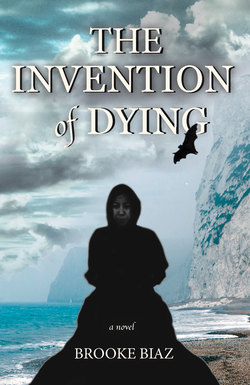Читать книгу Invention of Dying, The - Brooke Biaz - Страница 16
На сайте Литреса книга снята с продажи.
ОглавлениеFigure 4.
7.
Suffice it to say, before the arrival of Death, danger here on The Communion Islands consisted entirely of a knife and a block of volcanic stone on which to blunt it.
Men certainly lost their way, but nothing became of it. Women became ill with half-born children and themselves alike, simultaneously, but they always recovered. Infants fell at the feet of their vibrant island parents, and were simply picked up. Life expectancy—strange concept that!—life expectancy for those who never left The Communion Islands was, simply, Eternity. We were a nation composed almost entirely of brown skinned children, tanned, tempering in the island sun, and permanent.
Consequently, we looked at our local world as abject novices, never old enough to be old. We were constantly beginnings, not more, but determinedly not less. Openings. Alphas. Originals. Island kids in all our unadulterated kiddery. Flowing with new and unfathomable life about which we had little understanding and few concerns. We opened ourselves to everything. Why wouldn’t we? How couldn’t we? Why shouldn’t we?
You could hear our island nascence in our ordinary daily conversations, which rarely dwelt on anything but the unknown. Indeed, today a common opening on The Communion Islands remains:
“Do you know. . . ?”
As in, “Do you know, it might rain today?” addressed to someone (say your dearest friend, or a fisherman) who you might rightly suspect would know this.
More poignantly:
“Do you know, today is a good day?”
Or more tellingly perhaps, on account of these, our origins:
“Do you know what?”
“Do you know when?”
“Do you know why?”
As you can imagine, some visitors have mistaken some idiosyncrasies in our way of speaking for irony, as if the entire population of the Communions is given over to speaking in circumlocution, real meaning hidden in the thick jungle of our belief in opposites, situations presented in determined islander reverse. Other islanders, at the time, even thought of us as cruel and unprincipled. Can you believe? Accusations were frequent that we lived a kind of metaphoric life, devoid of any real feeling, perpetually young and persistently inattentive to the problems of others and of the real world.
Ha! Let me report. A youthful islands, we craved (and had long craved) what we did not yet know.
